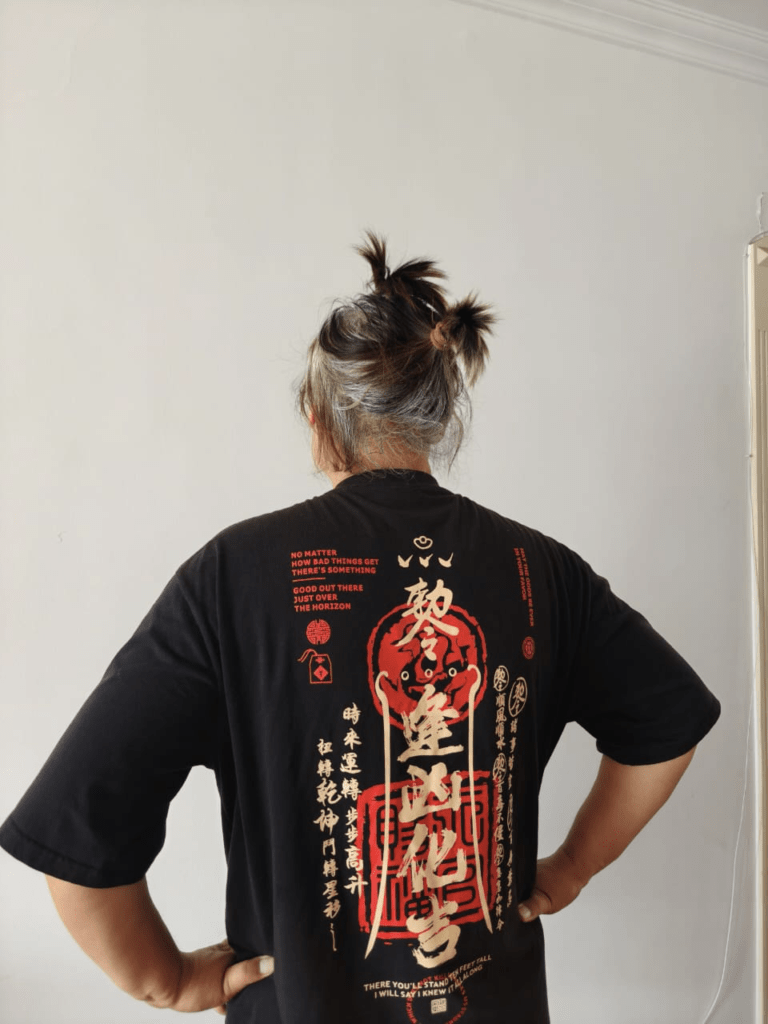
Image: Ma Yongbo with warrior hair, at 61 in Harbin, China.

Image: ‘Vision’ by Janet Lees, her unique photography, including this image, features in the forthcoming bilingual book ‘Night-Shining White’ by Ma Yongbo and Helen Pletts, Open Shutter Press, due out in 2025
Janet Lees (janetlees.weebly.com) is a poet, artist and poetry filmmaker. Her 2019 book ‘House of water’ combines her poetry and art photography, while ‘A bag of sky’ won first prize in the Frosted Fires First Pamphlet competition 2019.
Her poetry has been widely published in journals and anthologies including Magma, Poetry news, Lighthouse, and The Valley Press Anthology of Prose Poetry. She has won prizes in many different competitions, such as the Bristol Poetry Prize, the Guernsey International Poetry Prize, and The Aesthetica Creative Writing Award Finalist, and was the winner of the Poetry News Members’ Poems competition on the theme of ‘Looking Back’, judged by Daljit Nagra.
Janet’s videopoems and art films have been selected for a very wide range of international festivals and screenings, including the ZEBRA Poetry Film Festival and the Aesthetica Art Prize. In 2024 she won first prize in the Filmetry Festival in Michigan, and Best International Poetry Short at the Bloomsday Film Festival in Dublin. In 2022 her work featured in the landmark exhibition Poets with a Video Camera: Poetry Film 1980-2020 in Vancouver, and in 2021 she won the Ó Bhéal International Poetry Film Competition. Janet’s award-winning art photography has featured in solo and group shows around the world.
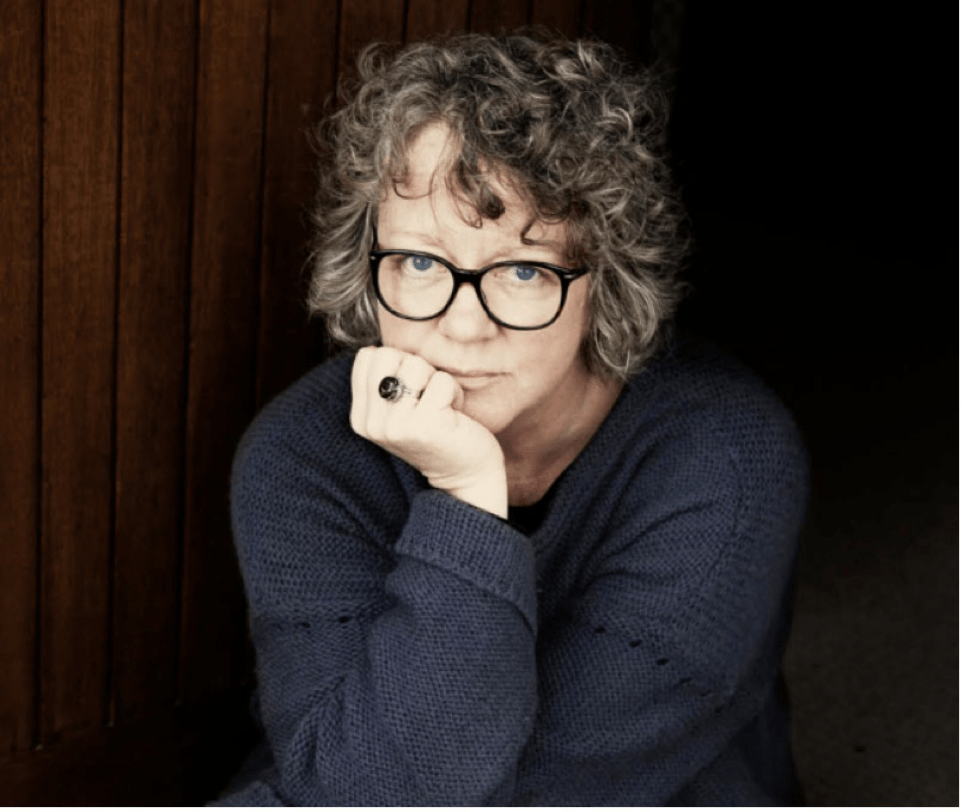
Image: Janet Lees
Ma Yongbo 马永波 celebrates his birthday on the 17th July 2025. When he was born, he was called Yongbo永波 (Forever Wave) by his parents, to compensate for his birth moment indicating a predicted lack of water, life long, according to the I Ching.
Ma Yongbo 马永波 was born in 1964. His great-grandfather went from Shandong to Suihua, Heilongjiang. His father was a soldier who was transferred from Harbin to Yichun City to be the warden of the prison. He was born in Yichun City.
the name of water—for Yongbo 水之名——致永波
in a clear spring, vowels are resting minnows,
light in tiny silver, circling, embellishing.
Each beginning as a small silver embryo.
A pale soft curling, is gradually opening,
straightens a bit and leans against a willow
unspooling her green hair into the brook.
Should we not stretch the poet out any further,
why not leave him resting here
in quiet silver? His floating fins are rippling
pen strokes, here he glances night and day
as one dance. Here he can languish in a muddy berth,
rocked only by the willow’s gentle spiralling wave
26th April 2025
Response Poetry by Helen Pletts 海伦·普莱茨
Response Poetry Translated by Ma Yongbo 马永波
水之名——致永波 the name of water—for Yongbo
在清冽的泉水中,元音是休憩的鲦鱼,
泛着细碎银辉,游弋盘桓,点缀其间。
每一个开端都如一枚银色的小胚胎。
灰色柔软的蜷曲,正缓缓舒展,
微微挺直,倚着一棵柳树,
将她的绿发垂入溪流中舒展。
我们不应再将诗人拉长,
为何不让他在此处休憩
在静谧的银辉里?他浮动的鳍
是荡漾的笔触,在这里,他日夜顾盼,
如同一支舞蹈。在这里,
他可在软泥的铺位上倦怠慵懒,
唯有柳枝轻柔旋卷的波浪将他摇晃
2025年4月26日,海伦·普莱茨
the name of water—answer to Helen 水之名—答海伦
Has he ever rested? For forty years straight,
he cruelly exploit his own body as if it belonged to another,
as if this body were truly flowing water, uncut by any blade.
He spent a lifetime exhausting one single word,
his only pleasure was the tired peace after silent struggles.
When he was born, his sorrowful parents
gave him this name, knowing water was missing from his fate.
Thus he feared water—Yongbo (Forever Waves), not grand and vast,
but forever full of twists and turns, ups and downs.
They say, “The benevolent delight in mountains; the wise delight in water,”
yet he particularly loved the gravity and steadiness of mountains.
Mountains never go with the flow or play both sides,
amid rivers and seas, he remained a stone—
hard and stubborn, never taking the shape of others’ will.
Now his knees and waist are stiff,
the joy of climbing mountains has vanished without a trace. He wants to draw closer to water,
to be softer, preferably with a pair of water sleeves—
able to dance gracefully with long sleeves, or hide a sword within them,
then drawing it to cut flowing water,
shattering the dark reflection of mountains,
let his name shine like broken silver
on the water’s surface, if only for a moment.
May 25, 2025
Response Poetry by Ma Yongbo 马永波
Response Poetry Translated by Ma Yongbo 马永波
水之名—答海伦 the name of water—answer to Helen
他何曾得到过休息,整整四十年
他残忍地压榨自己,仿佛这身体是别人的
仿佛这身体真的是流水,刀都砍不断
他用一个词语耗尽了一生
他唯一的享受是无声搏斗后疲惫的安宁
在他出生时,他忧愁的父母
为他取了这个名字,知道他命中缺水
由此他恐水——永波永波,不是波澜壮阔
而是永远波波折折,起起落落
都说”仁者乐山,智者乐水”
他却格外喜欢山的凝重与沉稳
山从不随波逐流,左右逢源
置身江河湖海,他都是一块石头
坚硬而固执,绝不会随物赋形
如今他的腰膝僵硬,登山的乐趣
已荡然无存,他想多多亲近水
他想柔软一些,最好有一副水袖
可以长袖善舞,也可以袖里藏刀
抽刀断水,搅碎山的暗黑倒影
让他的名字如碎银,在水面上闪烁片刻
2025年5月25日,马永波
“Ma Yongbo 马永波 is a poet of snow, shadows, and absences. His poems have committed the bodies of his parents and his elder brother to ceremonial flames, and explore, over and over, scenes from a long-lost childhood. “Break free from the cloud shadows in your heart,” he commands, while another poem admonishes, “nothing can hurt you,/ you are already dead.” He makes room for the uncanny, and seeks essence.” (Rosanna Warren) June 2025
马永波是一位书写雪、影子与虚无的诗人。他的诗歌将父母与兄长的躯体献祭给仪式之火,反复探寻早已消逝的童年场景。他在诗中发出指令,“挣脱内心的片片云影”,而另一首诗却警示道:“没有什么能伤害你,/你已经死了。”他为诡谲留出空间,并探寻本质。(罗桑娜·沃伦 2025年6月
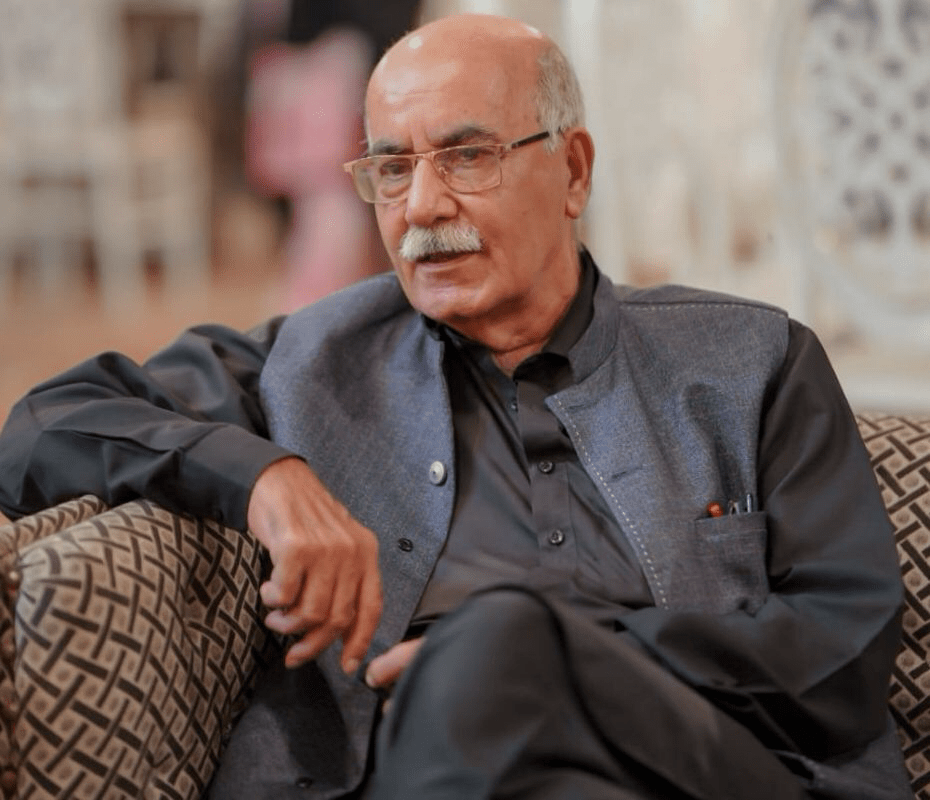
Image: NASIR AIJAZ, Editor of Sindh Courier
NASIR AIJAZ, Editor of Sindh Courier, on the Response Poetry of Ma Yongbo 马永波 and Helen Pletts 海伦·普莱茨
Nasir Aijaz – Sindh, Pakistan
Journalist, Author, Researcher and Poet
Nasir Aijaz, based in Karachi, the capital of Sindh province of Pakistan, is basically a journalist and researcher having spent half a century in the field of journalism. He won Sindh Governor’s Gold Medal and All Pakistan Newspapers Society (APNS) Award for best reporting in 1988 and 1989. He has worked in key positions of editor for newspapers and news agencies. He also worked as a TV Anchor (For Pakistan Television) for over a decade and conducted some 400 programs from 1982 to 1992 besides appearing as analyst in several programs on private TV channels. He also did dozens of programs on Radio Pakistan and some other private Radio channels. He is author of ten books on history, language, literature, travelogue and biography. One of his books ‘Hur – The Freedom Fighter’, a research work on war against the British colonial forces, also won second prize, awarded by Endowment Fund Trust (EFT) of Sindh government. Around a dozen other books are unpublished. Further, he translated a poetry book of Egyptian poet Ashraf Aboul Yazid, into Sindhi language, which was published in Egypt. Very recently, he translated a novel ‘Maharaja Dahir’ from English to Sindhi language, which originally was authored in Bengali by Debasree Chakraborti, a renowned novelist of Kolkata, India, which proved a bestselling book in Sindh. Besides, he has written around 500 articles in English, Urdu and Sindhi, the native language of Sindh. He is editor of Sindh Courier, an online magazine and represents The AsiaN, an online news service of South Korea with regular contribution for eleven years. His articles have also been translated in Arabic and Korean languages. Some of his English articles were published in Singapore, India and Nigeria and Egypt. He started writing poetry in his native language Sindhi, and English very late. Some of his poems have been translated in Odiya, Bengali, Hindi, Telugu, and Albanian, Italian, Arabic and Greek languages. Arabic translation has been published in Egypt, Iraq, and Abu Dhabi. His English poems have been published in Albania, Bangladesh, Kosovo, Serbia, USA, UK, Tajikistan, Greece, Italy, Germany, and some other countries. Recently, the Odiya translation of his poetry has been published in a literary magazine ‘Mahuri’ of Bhubaneswar, Odisha, India. His interviews have been published in Kenya, Italy, Albania, and Azerbaijan. He has received certificates of recognition for his role in promoting global literature, from international organisation’s of India and other countries.
Nasir Aijaz is one of the founding members of Korea-based Asia Journalists Association AJA. He has visited some ten Asian countries including Afghanistan (2 Times), Nepal (3 times), Bangladesh, India, Maldives, Cambodia, Sri Lanka, South Korea (7 Times) etc. and attended international seminars and conferences. Email: [email protected]
The Combined Poetic Dialogue, Sindh Courier
https://sindhcourier.com/the-combined-poetic-dialogue/
See article below in full in Chinese and English 请参阅下面的中文和英文全文
A Poetic Dialogue between Chinese Poet Ma Yongbo and Helen Pletts, a British poet based in Cambridge
Excerpt from Response Poetry section of Ma Yongbo and Helen Pletts’ forthcoming bilingual poetry book entitled ‘Night-Shining White’
This sequence of bilingual poetry opens the Response Poetry section of Ma Yongbo and Helen Pletts’ forthcoming bilingual poetry book entitled ‘Night-Shining White’ to be published by Editor Pete Taylor, Open Shutter Press in 2025. The poetry collection is over 320 pages long and would in fact have been longer, 420 pages, but for the decision to omit some of the Chinese versions of Ma Yongbo’s poetry which is already available in print. Their very unusual bilingual book confirms their first long year journey as co-translators and close friends who continue to produce a large body of new poetic material in response to each other’s lives and the everyday events around them. They plan to continue working together lifelong. Their poetry is published significantly on International Times.IT
How did their creative journey begin?
Poet Deborah Bogen’s initial translations of 3 poems by Ma Yongbo, were published 12th February 2024 in Vox Populi, inspiring Helen Pletts to leave a comment on the Vox Populi website, Edited by Michael Simms. Their first comments to each other are still on the site. Michael Simms went on to publish one of their first co-translations ‘Midway Stop’. The significance of Ma Yongbo’s poetry in English has continued rising from that special day, with his own translation of his poetry into English, besides their co-translation, with hundreds of translations completed so far and published all over the world.
Ma Yongbo has translated and published many of Helen Pletts’ poems in China. Their unique Response Poetry developed out of their close working.
This combined poetic dialogue (Response Poetry) between Helen Pletts and Ma Yongbo in ‘I am morning, you are night’ is a striking example of transnational, transcultural collaboration that weaves together complementary visions of time, distance, and connection. Their poems function as mirrored fragments of a shared consciousness, where themes of duality, liminality, and distance are explored with distinct yet harmonizing voices. Here’s an analysis of how their interplay succeeds:
Both poets anchor their work in light/dark, presence/absence, and spatial-temporal divides, but with contrasting textures.
– Helen Pletts leans into fragmentation and existential tension: ‘the glass must shatter us’ suggests irreconcilable edges, while her ‘night spider’ spins dreams that stretch but never fully bridge gaps. Her tone is elegiac, with echoes of modernist dislocation (e.g., ‘nowhere to rest our feet’).
– Ma Yongbo softens these edges with fluidity and shared motion: ‘we flow on the same river’ and ‘the line of light’ propose unity across time zones. His imagery—knights guarding a ‘homeland of poetry,’ or spiders cocooning the earth—frames separation as creative collaboration rather than rupture.
Their differences (Helen Pletts’ starkness vs. Ma Yongbo’s lyricism) create a call-and-response rhythm, like dawn answering night.
The poems often mirror titles and themes while diverging in perspective:
– ‘Walking through night and day simultaneously’: Helen Pletts’ spider stretches dreamers into elastic isolation, while Ma Yongbo’s spiders collaborate to ‘wrap the earth into a cocoon’—a metaphor for poetic creation.
– ‘A Spring Darkness Halting’: Helen Pletts’ darkness is a ‘tempest’ of absence; Ma Yongbo’s becomes a ‘sphere of silver light,’ transforming speed into transcendence.
This structural mirroring enacts the very connection they describe, as if their words are ‘the glass mirror view of a window, / seen from either side.’
The bilingual presentation (English/Chinese) deepens the theme of duality. Ma Yongbo’s lines often invoke classical Chinese poetics (e.g., the ‘silver scales’ of rooftops recalling traditional ink paintings), while Helen Pletts’ work resonates with European metaphysical abstraction (e.g., ‘the edge of the world’ as a shattered mirror). The translations themselves become part of the dialogue, with each language adding layers to shared metaphors.
Together, Helen Pletts and Ma Yongbo craft a choral lyricism, a poetic ecosystem, where separation and unity coexist. Their combined work thrives not in unanimity but in productive tension—like the ‘eight-hour time difference’ that becomes a ‘river’ they both navigate. The collection succeeds as a meditation on how art bridges divides, making the ‘invisible’ threads between worlds palpable.
Helen Pletts and Ma Yongbo create a rare synergy where two voices, though distinct, amplify each other’s strengths. The interplay feels less like a conversation and more like a shared incantation—one that turns time zones and languages into a single, shimmering horizon.
马永波与海伦·普莱茨的应和诗合集
这段双语诗歌序列,开启了马永波与海伦·普莱茨即将出版的双语诗集《照夜白》中“应和诗”部分。该诗集由皮特·泰勒编辑,将于2025年由”打开快门”(Open Shutter Press)出版。诗集超过320页,事实上原本可达420页,但因决定删去部分已印刷发表的马永波中文原作,篇幅有所缩减。这部独特的双语诗集见证了他们作为合译者和挚友的首个漫长年头——他们持续创作大量新诗,回应彼此的生活及周遭日常。二人计划终身合作,其作品多见于《国际时报》(IT),网址:
https://internationaltimes.it/?s=ma+yongbo+and+helen+pletts。
他们的创作之旅是如何开启的?
2024年2月12日,诗人德博拉·博根翻译的马永波三首诗在《民众之声》( vox populi )发表(编辑迈克尔·西姆斯,网址:
https://voxpopulisphere.com/2024/02/12/deborah-bogen-three-poems-by-yongbo-ma/
海伦受此启发在网站留言,两人的首次互动至今仍保留在页面上。迈克尔·西姆斯随后发表了他们的首个合译作品《中途停车》。从那天起,马永波诗歌的英文影响力持续上升——除合译外,他也亲自将作品译为英文,至今已完成数百篇翻译并在全球发表。马永波亦在中国翻译并发表了海伦的多篇诗作,两人的紧密合作催生出独特的“应和诗”。
海伦·普莱茨与马永波在《我是早晨,你是夜晚》中的诗歌对话(应和诗),是跨国、跨文化合作的典范。作品交织着对时间、距离与联结的互补性视角,诗篇如共享意识的镜像碎片,以迥异却和谐的声音探索二元性、临界性与距离等主题。以下分析其互动的成功之处:
两位诗人均以光/暗、存在/缺席、时空区隔为创作根基,但质感迥异:
– 普莱茨倾向碎片化与存在主义张力,如“玻璃必定将我们打碎”暗示不可调和的边界,“夜蜘蛛”编织的梦虽延伸却从未真正弥合鸿沟,语调哀婉,暗合现代主义的疏离感(如“无处安放双足”)。
– 马永波则以流动性与共同律动柔化边界,“我们在同一条河上流淌”“光的线条”等意象,勾勒跨时区的统一性。他的隐喻——如骑士守护“诗歌的家园”,或蜘蛛将地球包裹成茧——将分离诠释为创造性的协作,而非割裂。
二人的差异(普莱茨的冷峻 vs. 马永波的抒情)形成呼应节奏,宛如黎明回应黑夜。
诗篇常以镜像标题与主题呼应,却在视角上予以分化:
– 《同时穿行于黑夜和白天》中,普莱茨的蜘蛛将梦者拉伸至弹性的孤立,而马永波的蜘蛛则协作“将地球缠绕成一个茧”——隐喻诗歌创作。
– 《一个春天的黑暗停顿下来》中,普莱茨的黑暗是“缺席的风暴”,马永波的黑暗却化为“一团银光”,将速度转化为超越。
这种结构上的镜像,恰如他们所描述的联结本身,仿佛文字是“从两侧望见的窗玻璃的镜像”。
双语呈现(英/中)深化了二元主题:马永波的诗句常援引中国古典诗学(如屋顶“银鳞”令人联想到传统水墨画),而普莱茨的作品则与欧洲形而上抽象风格共鸣(如“世界的边缘”如破碎的镜子)。翻译本身亦成为对话的一部分,每种语言都为共享的隐喻增添层次。
普莱茨与马永波共同构建了一种合唱式抒情——一个诗歌生态系统,其中分离与统一并存。他们的作品并非依赖一致性,而是在富有成效的张力中生长,如同“八小时时差”化作”共同横渡的河流”。这部合集成功叩问:艺术如何跨越鸿沟,让世界间“不可见”的丝线变得可触。
二人创造了罕见的协同效应:两个声音虽各具特色,却彼此放大优势。这种互动并非对话,更似共同的咒语——将时区与语言转化为一片闪耀的地平线。
A sample of six of their Response Poems:
I am morning, you are night
I am morning, you are night
The twilight and early dawn,
Drawn between us, the softer edges
Of never starting, nor ending;
The extended conversation
Shuts before it opens.
Land is impossible
There is nowhere to rest our feet,
As we disappear,
The other approaches
As we are not, the other is.
The edge of the world
Is the glass mirror view of a window,
Seen from either side.
And the leaning point is where
The glass must shatter us,
And all we are
(31st January 2025)
Response Poetry by Helen Pletts
Response Poetry translated by Ma Yongbo
我是黎明,你是夜晚
我是黎明,你是夜晚
薄暮和拂晓,
在我们中间画出,更为柔和的边界
永无开始,也无尽头;
绵长的对话
未及开启,已然闭合。
着陆是不可能的
我们没有地方停歇,
当我们消失,
对方就会靠近
当我们缺席,对方就会存在。
世界的边缘
是窗玻璃的镜像,
无论从哪一侧观看。
而倾靠的临界点
玻璃必定将我们打碎,
连同所有的一切
2025年1月31日
海伦·普莱茨
I am morning, you are night
I am morning, you are night,
A time difference of eight hours,
Is an invisible river between us;
We stand on either shore, keeping watch,
Like two knights taking turns on guard,
Protecting the peace of the castle, the homeland of poetry.
You scatter seeds that no-one has ever seen.
In the folds of the dark night;
I encounter the stormy waters of the past
In the moment before waking from dreams;
Our worlds alternate between light and shadow,
Yet we flow on the same river.
Each wave of the tide is a greeting,
Each dawn and dusk shares a light,
You are night, I am morning,
East and West, on each other’s faces,
Recognising ancient signals and a shared horizon.
(February 15, 2025)
Response Poetry by Ma Yongbo
Response Poetry Translated by Ma Yongbo
我是黎明,你是夜晚
我是黎明,你是夜晚,
八小时的时差
是一条无形的河流;
我们在两岸,彼此守望,
像两个轮流站岗的骑士,
守护着城堡的和平,诗的故乡。
你在黑夜的皱褶里,
撒下从未有人见过的种子;
我在醒前刹那的梦中,
遭遇曾经沧海的往昔;
我们各自的世界,明暗交替,
却在同一条河上流淌。
每一阵潮涌,都是彼此的问候,
每一个晨昏,都有交汇的光芒,
你是夜晚,我是黎明,
东方和西方,在彼此的脸上,
辨认出古老的信号,和共同的远方。
2025年2月15日
马永波
Walking through night and day simultaneously
The night spider is spinning the dreamers
Until they are stretched like elastic.
Their tiny black feet reach each corner.
Her dark body spins a thread for the dreamers.
They can walk around the earth
And be within seconds of each other,
Meeting a dawn that never becomes blue,
Or an orange line that never disappears.
Meeting a day, whilst walking in night;
Sleeping in the head of a unit of light,
On a keystroke, or on the stroke of midnight
(28th January, early evening 2025)
Response Poetry by Helen Pletts
Response Poetry translated by Ma Yongbo
同时穿⾏于⿊夜和⽩天 马永波 译
夜蜘蛛在缠着做梦的⼈
直到他们如橡⽪筋⼀样被拉伸。
他们的⼩⿊脚伸向每个⻆落。
她⿊⾊的身体为做梦的⼈纺线。
他们可以绕地球⾏⾛
并且相隔⼏秒,
迎接永不会变蓝的黎明,
或者⼀条永不消失的橙⾊线条。
与⽩昼相遇,同时⼜在夜⾥⾏⾛;
睡在同⼀个光的脑袋⾥,
敲击键盘,或是敲击午夜
2025年1⽉28⽇傍晚
海伦·普莱茨
Walking through night and day simultaneously
If they really are night spiders,
They can spin one line together,
The line of light; he leads with the thread in the east,
She holds the tail of the line in the west,
Stretching it, like pulling apart the twisted joints of a snake.
They want to use this thread with a crimson head and azure tail
To wrap the earth into a cocoon, spin it,
Speed it up to the sun; let the sun illuminate its whole body.
Inside the cocoon, sleeps a gradually transparent dream;
A poetry baby who doesn’t need time
(28th January 2025)
Response Poetry by Ma Yongbo
Response Poetry translated by Ma Yongbo
同时穿⾏于⿊夜和⽩天
如果他们真的是夜蜘蛛
他们就能⼀起纺织出⼀根
光的线条,他在东⽅牵着线头
她在⻄⽅握着线条的尾巴
把它拉伸,像拉开⼀条蛇扭曲的关节
他们想⽤这根头部绯红、尾巴蔚蓝的线
把地球缠绕成⼀个茧,旋转它
把它加速滚向太阳,让阳光
同时照亮它的全身,茧壳⾥
睡着⼀个逐渐透明的梦
⼀个不需要时间的诗的婴⼉
2025年1⽉28⽇傍晚
马永波
“Are you home? It is deep night”
—WhatsApp message to Helen Pletts from Ma Yongbo
The point of the black bow is scuttled on the rocks
And the blackest sea is a tempest.
The stars don’t care for darkness;
Only that it holds silver in forever,
And what is distance to a star
Means a dark gap elsewhere
When the star is no more.
When I left, earlier, the circles of light were steady
Comfortable rings around the sun,
Now the wooden bar is as high as my ears
And my head spins with conversation.
The darkness is a coaxing drive along
Black in an empty headlight. Nothing
Moving in silver on earth; nothing moving
Above me in silver that I will remember
No soft white owl dances
No pines stirring. A spring darkness halting
Without frost, is a surprise of warmth,
And the message in the phone says this
(26th March 2025)
Response Poetry by Helen Pletts
Response Poetry translated by Ma Yongbo
你在家吗?已是深夜
——给永波
黑色的船尖在岩石上沉没
而最黑的海是一场风暴。
星星不在乎黑暗;
只在乎它永远蕴藏着银色,
对星星而言,距离意味着
当它不复存在时
别处将有一道漆黑的间隙。
早先我离开时,光圈是稳定的
舒适的圆环环绕着太阳,
此刻木制吧台已高及我的双耳
我的脑袋因交谈而晕眩。
黑暗是一次哄骗性的驾驶
沿着空荡头灯中的黑色。没有什么
在地上的银色中移动;没有什么
在头上的银色中移动。我会记住
没有猫头鹰跳舞时的柔软
没有松枝的摇曳。一个春天的黑暗停顿下来
没有霜冻,是一场温暖的惊喜,
而手机里的留言就是这样写的。
2025年3月26日
海伦·普莱茨
A Spring Darkness Halting
—for Helen Pletts
Darkness descends on every road, the dark rustles
Like someone flipping through a vast invisible book.
He must find that long-forgotten silver word in time,
His body blackens segment by segment, turning to ash
Yet remains stubbornly upright.
Midnight frost has transformed grey tiles to silver scales,
The rooftop as a great fish arches its spine toward endless stars
Ready to depart for an interstellar colony.
Darkness is acceleration, trees along the path lean accordingly.
Even the darkest matter, reaching certain velocity,
Becomes a sphere of silver light, nothing can obstruct
Fear and joy turning transparent with speed.
Yet he still searches the book for an ancient spell
To make a spring darkness halt its course.
Like one who stops midway driving home through deep night,
Listening to the silver breath of surrounding trees,
Listening to the suddenly vast silence.
(27 March 2025, noon)
___________
一个春天的黑暗停顿下来
——给海伦·普莱茨
黑暗降临在所有的路上,黑暗沙沙作响
像是有人在快速翻阅一本无形的大书
他必须及时找到那个久以遗忘的银色词语
他的身体在一截截变黑,变成灰烬
但依然保持着直立的固执
午夜的霜已将那些灰瓦变成了银色的鳞片
屋顶,一条大鱼朝无尽星空隆起了脊背
就要启程出发,前往一个星际殖民地
黑暗是一种加速度,沿途的树木将因此而倾斜
即便再黑暗的事物,到了一定的速度
也会变成一团银光,没有什么能够阻挡
因飞驰而逐渐透明的恐惧和喜悦
可他依然在书中翻寻一个古老的咒语
只要找到它,一个春天的黑暗就会停顿下来
像是一个深夜驱车回家的人中途停下
倾听周围树木银色的呼吸,倾听突然辽阔起来的寂静
2025年3月27日中午
马永波
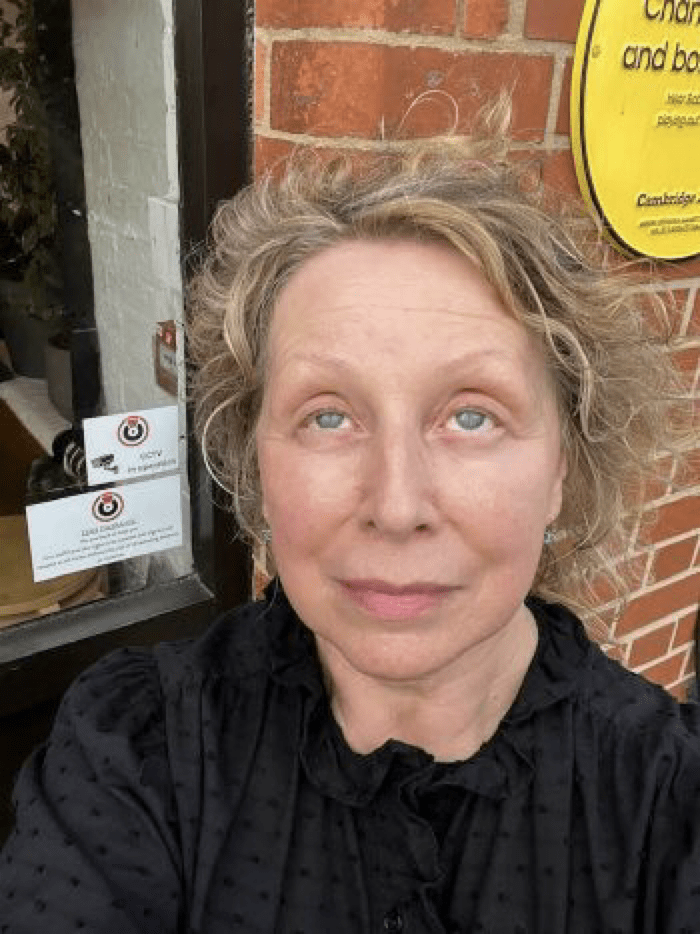
HELEN PLETTS is a British poet based in Cambridge, whose work has been translated into Chinese, Bangla, Greek, Vietnamese, Serbian, Korean and Italian. She is the English co-translator of Chinese poet Ma Yongbo.
Helen’s poetry has garnered significant recognition, including five shortlistings for the Bridport Poetry Prize (2018, 2019, 2022, 2023, 2024), two longlistings for The Rialto Nature & Place Prize (2018, 2022), a longlisting for the Ginkgo Prize (2019), a longlisting for the National Poetry Competition (2022), 2nd Prize in the Plaza Prose Poetry Competition (2022-23), and a shortlisting for the Plaza Prose Poetry Competition (2023-24).
Her three collections include the illustrated ‘your eye protects the soft-toed snow drop’, with Romit Berger (2022, ISBN 978-9-657-68177-0, Gama Poetry) and two early collections ‘Bottle bank’ (2008 ISBN 978-1-84923-119-0), and ‘For the chiding dove’ (2009, ISBN 978-1-84923-485-6) published by YWO/Legend Press with Arts Council support. Her prizewinning prose poetry features in The Plaza Prizes anthologies, and her eco-poetry appears in anthologies from Open Shutter Press and Fly on the Wall Press. Her work is widely published in journals such as International Times, Vox Populi, Ink Sweat and Tears, Aesthetica, Orbis, The Mackinaw, Cambridge Poetry, The Fenland Reed, Poetry on the Lake, Polismagazino.gr, europeanpoetry.com, Verse-Virtual.org, Magique Publishing, Primelore.com, Deshusa.com, Verseum Literary, Stigmalogou.gr, Area Felix, New World Poetry (Chinese)—four of her prose poems, translated by Ma Yongbo, opened the 35th Anniversary Edition dedicated to prose poetry, December 2024.
Publisher Kate Birch describes her work: “Helen’s very personal poetry reveals her strong connection to the natural world while also laying herself open emotionally. She writes with a thoughtful, mesmerizing delicacy on love and death, on joy and need, illness and exhaustion.”
“I enjoy this collection of poems—Helen has restored her individuality into different animals, plants, and even more tranquil scenes, and this process is neither passive nor deliberately planned. Clearly, this new type of relationship between humans and nature not only opens up a new world for us but also places us in the most fitting position within it. The translator’s non-subjective handling of language style, along with the retention of structures like post-positioned adverbs, allows Helen (who can also be seen as the modern human subject) to faithfully present her sense of restoration within the concise framework of Chinese. Their joint effort gives readers the trinitarian nature of the medium, that precious power which expands through the natural, spiritual, and linguistic ecologies—clear, silent, and growing.” (Yan Rong, poet, PhD, professor)
_____
海伦·普莱茨(Helen Pletts)是一位生活在剑桥的英国诗人,其作品已被译为中文、孟加拉语、希腊语、越南语、塞尔维亚语和意大利语。她是中国诗人马永波诗歌的英文合作译者。
普莱茨的诗歌创作屡获殊荣:五度入围布里德波特诗歌奖(2018、2019、2022-2024),两度入选《里亚尔托》自然与地方诗歌奖长名单(2018、2022),入围银杏生态诗歌奖(2019)、英国国家诗歌大赛(2022),获广场散文诗大赛亚军(2022-23)并再度入围该奖项决选名单(2023-24)。
她出版的三部诗集包括与罗米特·伯杰合作的插图诗集《你的眼睛守护着软趾雪花莲》(2022年,ISBN 978-9-657-68177-0,伽马诗歌),以及由青年作家组织/传奇出版社在艺术委员会资助下出版的早期诗集《瓶子银行》(2008年,ISBN 978-1-84923-119-0)与《致训诫之鸽》(2009年,ISBN 978-1-84923-485-6)。其获奖散文诗收录于《广场奖选集》,生态诗歌见于“打开快门”出版社与“墙头蝇”出版社的选集。作品广泛发表于《国际时报》《民众之声》《墨汗泪》《美学》《奥比斯》《麦基诺》《剑桥诗刊》《沼地芦苇》《湖上诗刊》《城邦》《欧洲诗歌》《诗虚拟》《魔法》《原始传说》《德胡萨》《诗界》《理念的圣痕》《菲利克斯领域》以及《新世界诗刊》(中文版)——其中四篇由马永波翻译的散文诗作为开篇之作,刊登于2024年12月出版的散文诗专号(创刊35周年纪念特辑)。
出版人凯特·伯奇如此评价她的作品:“海伦的诗歌极具个人特质,既展现了她与自然世界的深刻关联,又毫无保留地袒露情感。她以一种沉思的、令人着迷的细腻笔触,书写爱与死亡、欢愉与渴求、疾病与衰竭。”
“我享受这组诗——海伦把她的个人性还原到了不同的动物、植物甚至更为静谧的场景当中,而且,这个过程并非是被动发生和刻意谋划的;显然,这种人和自然的新型关系,不但为我们敞开了一个新的世界,也在其中安置了我们最为恰切的位置。而译者对语言格调的非主体性处理以及状语后置等形式的保留,让海伦(也可以看作是现代人类主体)的还原意识得以在汉语的简洁框架中忠实呈现。他们的共同努力则使读者获得了三位一体的介质属性,即那宝贵的扩展于自然生态、精神生态和语言生态中的清醒、沉默而生长的力量。”(晏榕,诗人,博士,教授)
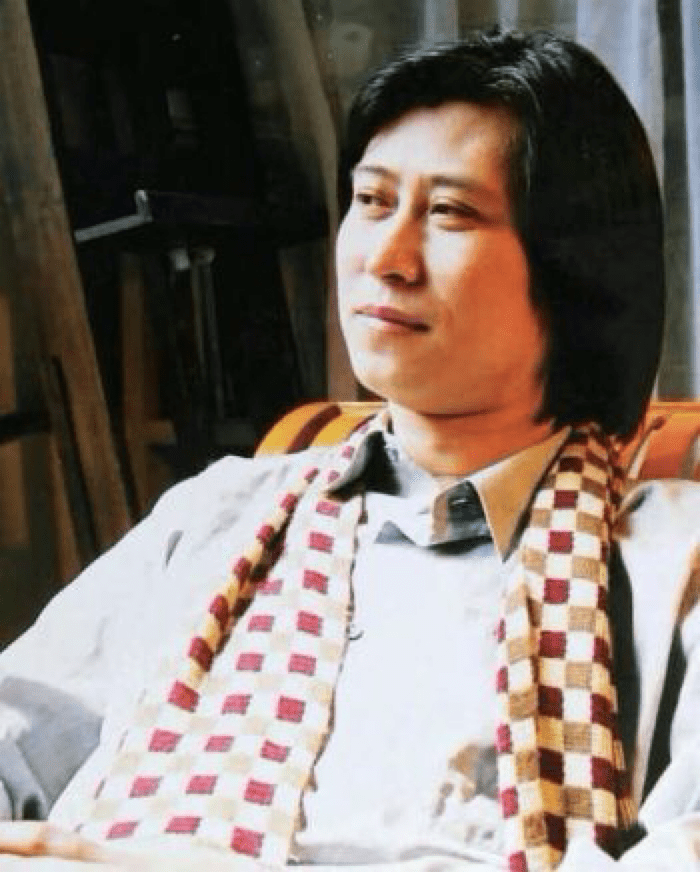
MA YONGBO was born in 1964, Ph.D., representative of Chinese avant-garde poetry, and a leading scholar in Anglo-American poetry. He is the founder of polyphonic writing and objectified poetics. He is also the first translator to introduce British and American postmodern poetry into Chinese, making contributions that fill gaps, the various postmodern poetry schools in Chinese are mostly guided by his poetics and translation.
He has published over eighty original works and translations since 1986 included 9 poetry collections. He focused on translating and teaching Anglo-American poetry and prose including the work of Dickinson, Whitman, Stevens, Pound, Williams and Ashbery. He recently published a complete translation of Moby Dick, which has sold over 600,000 copies. He teaches at Nanjing University of Science and Technology. The Collected Poems of Ma Yongbo (four volumes, Eastern Publishing Centre, 2024) comprising 1178 poems, celebrate 40 years of writing poetry.
His work is widely published in international journals such as New American Writing Livemag, Cafe Review, International Times, Vox Populi, Ink Sweat and Tears, Orbis, Cambridge Poetry, Polismagazino.gr, europeanpoetry.com, Verse-Virtual.org, Magique Publishing, Primelore.com, Verseum Literary, Area Felix Masticadoresusa Feed the Holy ONE, Sindhcourier Lingo Lexicon Worldinkers,Avantappalachia,Masticadorescanada,Madswirl,Collaborature,Allyourpoems,Homouniversalisgr,100subtextsmagazine,Pandemoniumjournal,Cultural Reverence Rochford Street Review Synchchaos Ezra Autumn Sky Poetry Daily Nuthatchmag Posit Yumpu Our Poetry Archive All Your Poems Subliminal. Surgery Atunis Insightmagazine Lothlorien Poetry Journal Acheron Gorkogazette A Too Powerful Word Chiron Review Gas Chewers Medusaskitchen Beatnikcowboy Dear O Deer! New Black Bart Poetry Society, Edge of Humanity Liveencounters Big Other etc.
马永波出生于1964年,文学博士,中国先锋诗歌代表人物,领先的英美诗歌学者。他是复调写作和客观化诗学的奠基者,也是第一个将英美后现代诗歌译介进汉语的翻译家,具有填补空白的贡献,汉语中诸种后现代诗歌流派多受其诗学与翻译的引领。
从1986年起,他已出版原创与翻译著作80余卷,包括9部诗集。他专注于翻译和教授英美诗歌和散文,包括狄金森、惠特曼、史蒂文斯、庞德、威廉斯和阿什贝利的作品。他最近出版了《白鲸》的全译本,销量已超过60万册。他任教于南京理工大学。《马永波诗歌总集》(四卷本,东方出版中心,2024年)共收录1178首诗,庆祝他诗学探索40周年。
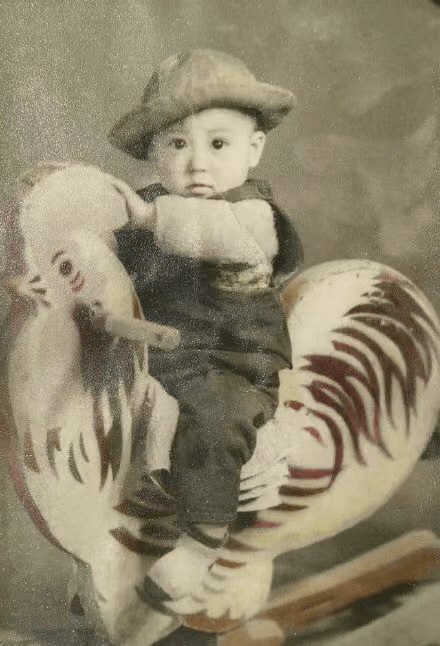
Happy Birthday, Bear !
All images under individual copyright © to either Ma Yongbo 马永波 or Helen Pletts 海伦·普莱茨

Image: Anonymous, 12th Century, Painting on Silk (National Palace Museum, Taipei) During the Song dynasty between 960 AD and 1179AD traditional Chinese painting reached its zenith. during this time. The age has become synonymous with exquisite deft naturalism, like this kitten by an unknown painter from the twelfth century.
she is bright in his dark opposite—for Yongbo to celebrate his birthday
她在他黑暗的对面闪耀——给永波的生日诗
his night holds her, late into darkness she curls
and revolves inside lightbulbs, while he shudders
close by, moving in her flickering. He lengthens
across everything she touches, briefly he is darker,
then slipped into violet and indigo. He is a wading peacock
preening himself in a dark glass, she is his mirror light,
white and lifting the glass for him as if it were bright water
3rd July 2025
Response Poetry by Helen Pletts 海伦·普莱茨
Response Poetry Translated by Ma Yongbo 马永波
她在他黑暗的对面闪耀——给永波的生日诗
she is bright in his dark opposite—for Yongbo to celebrate his birthday
他的夜晚拥抱着她,她蜷缩进黑暗深处
在灯泡里旋转,而他在近旁颤抖,
随她的闪烁而动。他的身影延伸
覆盖她触及的一切,片刻间他更显幽暗
继而融入紫色与靛蓝。他是涉水的孔雀
在暗镜中梳理羽毛,而她是他的镜中之光
皎洁,为他举起那面镜子,仿佛那是明亮的水面
2025年7月3日
海伦·普莱茨
.
